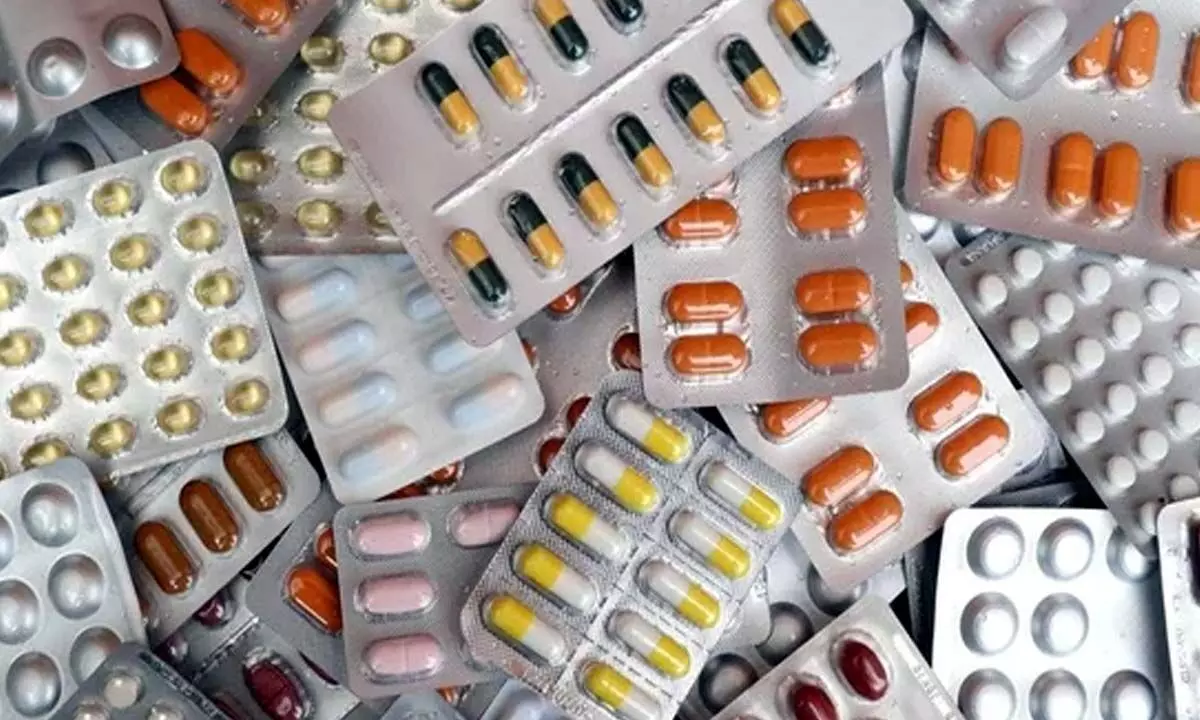Need to make MDR-TB drugs affordable
Multinational drug corporations should remove additional barriers blocking generic manufacturing of TB drugs bedaquiline and delamanid to save millions of lives
image for illustrative purpose

According to research that estimates, the cost of production plus a profit, delamanid is a shocking 13-18 times more expensive than it could be; ranging from $1,250 to $1,700 for a 6-month treatment course, when it could be priced at $96 if generic production is allowed. Bedaquiline is almost three times more expensive than it could be, at $270 for a 6-month treatment course, when it could be $102
Civil society organizations across the world have been demanding to the two international pharmaceutical majors Johnson & Johnson and Otsuka, and also to the not-for-profit organisation TB Alliance to remove additional barriers blocking generic manufacturing of two new-generation drugs for the treatment of multi-drug resistant tuberculosis (MDR-TB) -bedaquiline and delamanid - which were introduced in the world in the year 2013.
Currently, both bedaquiline and delamanid are still patented medicines for which the originator pharmaceutical corporations, Johnson & Johnson and Otsuka respectively, have a global monopoly blocking price-lowering competition among generic manufacturers. In 2018, the World Health Organisation (WHO) placed these new oral drugs in the list of 'priority' drugs for the treatment of MDR-TB. Till then, MDR-TB cases were treated with kanamycin and capreomycin injections, along with another group of drugs called fluoroquinolones. But, these therapies had serious side-effects including hearing loss and kidney ailments. Moreover, patients have to visit a health facility every day for six months to take injections. Now, WHO no longer recommends use of kanamycin and capreomycin for TB patients due to the increased risk of treatment failure and relapse associated with their use.
By changing the treatment guideline, the WHO hopes to see major improvement in treatment outcomes and quality of life of patients with MDR-TB. But, both these potentially life-saving drugs are currently patented and are beyond the reach of the common people. While bedaquiline is sold under the brand name Sirturo by Janseen, a unit of Johnson & Johnson; delamanid is sold by Japan's Otsuka Pharmaceutical and by Mylan in India. Subsequent to India's adoption of the product patent regime for pharmaceuticals in 2005, bedaquiline and delamanid were two of the first TB drugs to be patented which will expire only in July and October 2023.
According to a report released by the international medical non-governmental organization Médecins Sans Frontières (MSF), the two newer TB medicines going off patent next year present a critical opportunity to increase access to shorter, safer and better treatment for people with drug resistant tuberculosis (DR-TB). Once additional barriers are removed, more manufacturers can enter the market and thus bring down the prices of these drugs considerably. The report – DR-TB Drugs Under the Microscope, 8th edition – surveyed the pricing and patent landscape of DR-TB medicines for adults and children and found that extremely high prices are still being charged for newer TB drugs; a key factor hampering treatment scale-up.
With DR-TB cases increasing for the first time in years, MSF called on pharmaceutical corporations and other drug developers to immediately dismantle the barriers blocking generic manufacturers from entering the market, so that production of these drugs can be scaled up, leading to increased access to affordable, safer, and more effective medicines for people who need them. According to research that estimates, the cost of production plus a profit, delamanid is a shocking 13-18 times more expensive than it could be; ranging from $1,250 to $1,700 for a 6-month treatment course, when it could be priced at $96 if generic production is allowed. Bedaquiline is almost three times more expensive than it could be, at $270 for a 6-month treatment course, when it could be $102.
According to a government report, an estimated 1,30,000 persons get DR-TB in India annually. Not only in India, DR-TB is also a major public health problem across the globe. Out of the ten million people who fell ill with TB in 2016 alone, over half a million are estimated to have resistance to the currently used drugs namely, rifampicin and isoniazid. Under this background, both bedaquiline and delamanid offer fresh hope to those at high risk of treatment failure, notably people living with HIV co-infected with DR-TB, children with DR-TB, extensively and pre-extensively drug resistant (XDR/pre-XDR) TB patients and those with drug intolerance. Obviously, there is an urgent need for these drugs to be more widely available for patients for whom an effective regimen cannot otherwise be formulated.
Bedaquiline and delamanid are game-changing TB drugs that could help save many more lives, so everyone with DR-TB should be able to access them. The high price of these drugs is not only limiting the capacity to treat more patients but is also limiting the efforts of national TB programmes to scale up the treatment. So, the multinational drug corporations should not put their profits over people's lives. It is time these two newer TB drugs are made available and affordable as that will give a new ray of hope to millions of patients suffering from this dreaded disease.

